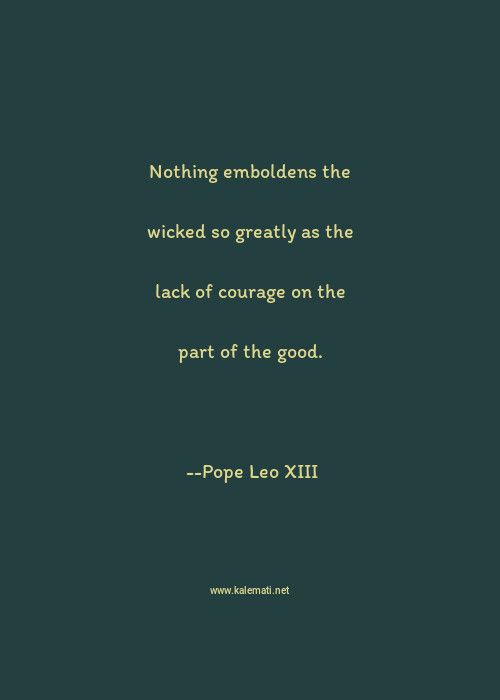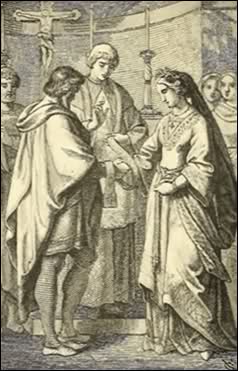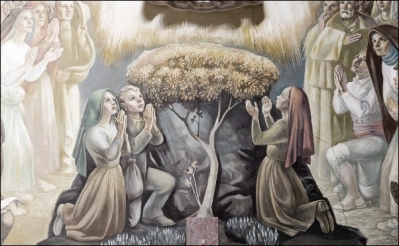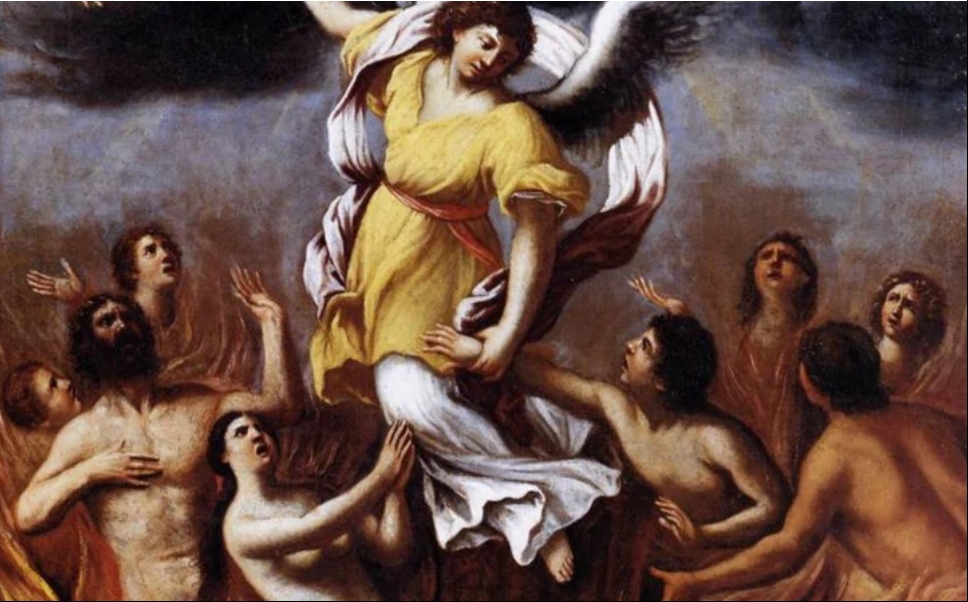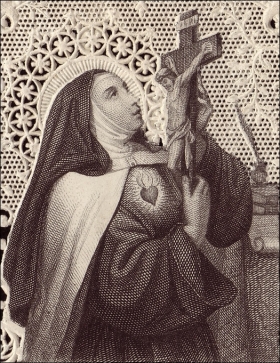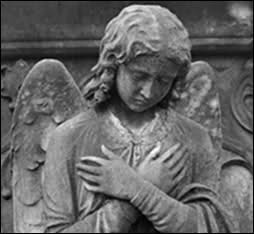Mass-Media Recap

“Typical of adolescents the mass media display impulsivity and unstable moods; alternation between hedonism and blaming; between aggression and cowardice; sarcasm and sentimentality; impossible idealism and indignant charges of hypocrisy; wild recklessness and paralyzing guilt; snide arrogance and hero-worship — is obsessed with novelties, fashion and peer approval; is extravert (needing continual external stimulation); and is emotionally cold, selfish and manipulative while burning with resentments, bursting with personal entitlements, prone to self-pity, and zealous for abstract ‘justice’ which other people fail to live up to.”
http://charltonteaching.blogspot.co.uk/2012/10/the-adolescent-society-uganda-to-uk.html
ABCs and 123s

“Man will occasionally stumble over the truth, but usually manages to pick himself up, walk over or around it, and carry on.”
― Benjamin Franklin
According to a recent survey, the average college student’s idea of Tyrannosaurus rex is modeled on Barney the purple dinosaur. Accurate portrayals in movies and textbooks make no difference: students continue to believe T. rex stood upright instead of pitched forward like the real thing.
Once people get ideas in their heads it takes very little to keep them there, and the problem applies to Catholicism no less than paleontology. A veteran professor of history [John Rao] at a Catholic university [St. John’s, Staten Island, New York] notes that despite their terror concerning grades in my courses, almost all of my students completely ignore the pro-Catholic, record-straight-setting information I give them, and recite the dominant errors and mantras aimed against the Faith on tests. As far as I can determine, this is in no way due to deeply-rooted conviction on their part. Rather, it merely indicates the power of the propaganda fed them from practically every social channel since early youth. They simply cannot expel the erroneous and hostile words from their heads. [For more, see comment below]
So how do we drive the historical and philosophical equivalent of fluffy purple dinosaurs out of discussions relating to the Faith when information doesn’t penetrate, discussion doesn’t help, pleading doesn’t work, and nothing we say seems to make any difference? What’s needed, it seems, is shock and awe, or at least their closest literary equivalent: paradox, aphorism, and other forms of pointed statement or questioning that disrupt settled expectations and stick in the mind where they can continue to do their work.
Among their other benefits, such verbal devices could provide snappy responses to anti-Catholic talking points. The assumptions of public discussion presume liberal secularism. They are part of a comprehensive outlook on man, society, the world, and reality itself that most people don’t exactly believe but don’t know how to escape. The result is that Catholics get tongue-tied, or give up points they shouldn’t, because they’ve already accepted their opponents’ basic principles and don’t know how to avoid one objectionable consequence after another. We need the verbal equivalent of jiu-jitsu to turn the assumptions and discussion around. Paradox, aphorism, and pointed inquiry seem to fit the bill.
G. K. Chesterton was a master of the strategy as applied to everyday public discussion, and I think that’s at least half the secret of his popularity. Nicolás Gómez Dávila was another great Catholic aphorist, although one who worked at a less popular level. And at a higher level still, thinkers like Pascal and Simone Weil said things suitable to shock almost anyone out of his torpor.
In an age of memes, tweets, and spin the tradition of aphorisms that transfix and transform seems to have vanished. It’s not at home in a world that rejects boldness and truth in favor of focus groups and what seems likely to sell to this demographic or that. The anonymous English scholar who blogs as Deogolwulf has composed some good aphorisms that debunk the errors of secular progressivism. He doesn’t present himself as Catholic, though, and his recent compositions are all in German, so the rest of us need to step up as well.
A good paradox or aphorism requires imaginative and literary talents, and few of us can match Chesterton in that regard, let alone some of the others I’ve mentioned. Still, as GKC himself said, “if a thing is worth doing, it is worth doing badly.” So with that in mind, and to do what little I can to help get things started, I’ll list some snappy questions I included in my book The Tyranny of Liberalism, and append some items a friend gleaned here and there on the internet. Others can and should add their own.
Given where they appeared, mine have to do with secular liberalism, the movement that has given us Benedict’s “dictatorship of relativism.” So they don’t cover everything we must deal with, but may nonetheless be useful against a major fortress of anti-Catholicism:
■If liberalism is tolerant, why all the propaganda and reeducation programs?
■If it’s based on consent, why the emphasis on judges, experts, bureaucrats, and theorists?
■If it’s skeptical and empirical, why the demand for radical transformation of all social arrangements everywhere?
■If liberalism unleashes creativity and emphasizes the individual, why does it make everyone and everything the same?
■If it lets people choose their values, how can it prescribe their opinions of other people’s values?
■If choosing my values is good, why does it become bad if I choose cultural cohesion and somewhat traditional sex roles?
■How can “diversity” (respecting differences) and “inclusiveness” (eliminating the effect of differences) be the same?
■What can freedom in private life amount to if government insists on the reeducation of children and radical reform of family life?
■Equal celebration of cultures means that particular cultural standards must be driven out of social life, since otherwise one culture will dominate others. How is that different from the abolition of culture?
■What’s the difference between saying someone has to treat beliefs about God and morality as equally worthy, and saying he has to treat his own beliefs as personal tastes and thus not beliefs about God and morality at all?
A friend has gathered other aphorisms and pointed comments from the web. Again, they’re mostly political, but that can be hard to avoid at a time when secularism makes all things political:
■What gives us freedom of spirit without self-control is disastrous. (Goethe)
■Liberalism bases human dignity not on having a human essence, but on having an active will.
■When liberty is worshipped as an end in itself, it results in the vulgarizing inclination merely to do what one likes.
■The leftist is fashion-sensitive precisely because fashion provides the stimulating novelty that alone dulls the pain and boredom of life in a Godless, meaningless universe.
■In the absence of virtue the soul gorges on imitations of virtue such as liberalism.
■Liberal society—forever trying to turn anomalies into the norm.
■License is no friend to the poor.
■The real dichotomy is not between democracy and other types of government, but between an authority based on the will, and an authority based on something transcending the will.
■The Great Lie is none other than the promise made by the serpent in Genesis 3:22—the promise that by joining the cosmic revolution against God and His order man could become a god unto himself, defining reality itself by will alone.
■As a lie accrues power, it seeks to obliterate any vestige of the truth that could expose it.
■It is difficult to get a man to understand something when his salary depends upon his not understanding it. (Upton Sinclair)
■Modern Man is ashamed of innocence and prides himself on understanding evil, while the Christian is ashamed of his knowledge of evil and seeks understanding of Good.
■The faithful believer experiences a deep and abiding inner assurance that cannot be transferred to another person and is thus quite baffling to those without it.
■A coincidence is an event in which God chooses to remain anonymous.
http://www.crisismagazine.com/2013/using-the-aphorism-to-challenge-liberalism
The Hollow Men and the Culture of Death

The culture of death so prevalent in today’s society reflects the emptiness and disillusionment so vividly expressed in The Hollow Men by T.S. Eliot. This famous poem depicts a world of “stuffed men” who do not fully live life, who go through routine motions awaiting “death’s twilight kingdom.”
The lack of hope in today’s secular culture is evidenced by broken or non-existent family life and relationships, a breakdown of manners and common courtesy in social interaction, and indulgence in lavish lifestyles, sex, food, and media as ways to escape the emptiness.
As a result of this pleasure-seeking mentality, there is also a systematic effort to suppress and eliminate the weaker, more vulnerable members of society who present inconveniences to others and are seen as burdens. Legislative efforts to loosen or abandon restrictions on assisted suicide, euthanasia, and abortion are a direct result of the mindset that encourages us to eliminate people who are inconvenient or unwanted in our pursuit of pleasure. The result? “Hollow men” trying to keep themselves entertained on the death march.
The poem’s vivid imagery likens the world of hollow men to “a valley of dying stars.” Today’s dying stars are the unique lives which are unappreciated and disregarded by those who see them as useless. Parents are encouraged to terminate “unhealthy” unborn life. If the “unhealthy” are already present in the world, they are given the option to terminate their own lives so they won’t be a burden to others.
But eliminating the weak and defenseless will not lead to more happiness and convenience; it will only lead to increased fear and less freedom. When one category of human beings, such as the unborn, the elderly, or the sick are targeted for elimination, what is to prevent other human lives from being considered less valuable or worthy of protection? By what standard is this decided? The elimination and disregard of the weak and defenseless only puts pressure on the “healthy” to work harder to prove that their life has worth so they too, will not be marked for elimination.
Pope Benedict XVI writes in his 2007 encyclical Spe Salvi(Saved in Hope): “A society unable to accept its suffering members and incapable of helping to share their suffering and bear it inwardly through ‘compassion’ is a cruel and inhuman society” (#38). The ability to accept those who suffer, those who are weaker and more vulnerable, makes us more human. Christ himself demonstrated this nobility of heart in his treatment of the sick and rejected members of society.
With Christ, we are no longer hollow and empty; we are instead a people of hope, and therefore a people of life. We must not sit by idly as the “hollow men” systematically create a culture hostile to life at its most vulnerable stages. We must strive every day to counter these efforts by witnessing to the dignity and value of each person.
The Hollow Men by T S Eliot
Mistah Kurtz-he dead
A penny for the Old Guy
I
We are the hollow men
We are the stuffed men
Leaning together
Headpiece filled with straw. Alas!
Our dried voices, when
We whisper together
Are quiet and meaningless
As wind in dry grass
Or rats’ feet over broken glass
In our dry cellar
Shape without form, shade without colour,
Paralysed force, gesture without motion;
Those who have crossed
With direct eyes, to death’s other Kingdom
Remember us-if at all-not as lost
Violent souls, but only
As the hollow men
The stuffed men.
II
Eyes I dare not meet in dreams
In death’s dream kingdom
These do not appear:
There, the eyes are
Sunlight on a broken column
There, is a tree swinging
And voices are
In the wind’s singing
More distant and more solemn
Than a fading star.
Let me be no nearer
In death’s dream kingdom
Let me also wear
Such deliberate disguises
Rat’s coat, crowskin, crossed staves
In a field
Behaving as the wind behaves
No nearer-
Not that final meeting
In the twilight kingdom
III
This is the dead land
This is cactus land
Here the stone images
Are raised, here they receive
The supplication of a dead man’s hand
Under the twinkle of a fading star.
Is it like this
In death’s other kingdom
Waking alone
At the hour when we are
Trembling with tenderness
Lips that would kiss
Form prayers to broken stone.
IV
The eyes are not here
There are no eyes here
In this valley of dying stars
In this hollow valley
This broken jaw of our lost kingdoms
In this last of meeting places
We grope together
And avoid speech
Gathered on this beach of the tumid river
Sightless, unless
The eyes reappear
As the perpetual star
Multifoliate rose
Of death’s twilight kingdom
The hope only
Of empty men.
V
Here we go round the prickly pear
Prickly pear prickly pear
Here we go round the prickly pear
At five o’clock in the morning.
Between the idea
And the reality
Between the motion
And the act
Falls the Shadow
For Thine is the Kingdom
Between the conception
And the creation
Between the emotion
And the response
Falls the Shadow
Life is very long
Between the desire
And the spasm
Between the potency
And the existence
Between the essence
And the descent
Falls the Shadow
For Thine is the Kingdom
For Thine is
Life is
For Thine is the
This is the way the world ends
This is the way the world ends
This is the way the world ends
Not with a bang but a whimper.
http://www.lifenews.com/2011/10/03/abortion-the-hollow-men-and-the-culture-of-death/
The Bad Good
Power is in tearing human minds to pieces and putting them together again in new shapes of your own choosing. Do you begin to see, then, what kind of world we are creating? ― George Orwell, 1984
Others have already pointed out the absurdity that gay marriage is becoming a right in places where plastic bags and large sodas are becoming against the law. This sort of next wave civil rights step is only an expansion of freedom if you aren’t paying attention.
All the arguments over the differences between civil unions and marriage are largely meaningless. Once gay marriage is recognized, then marriage becomes nothing more than a civil union. The real casualty is the destruction of the word “marriage”, but the left is adept as destroying language and replacing meaningful words with meaningless words.
There was no word in Newspeak for freedom. We can look forward to an English language in which there is no word for marriage. And what does freedom mean anyway in a country where most things are banned, but we are constantly throwing holidays to celebrate how free we are?
But if marriage is no longer refers to a natural social institution, but now means a civil union recognized by the state, then why stop at two? Gay rights advocates insist that there is some magic difference between polygamy and gay marriage. There isn’t any difference except the number. And if we’re not going to be bound by any antiquated notion that marriage is an organic institution between man and woman, then why should we be bound by mere number?
True marriage equality would completely open up the concept. But it’s not actually equality that we’re talking about. It’s someone’s idea of the social good. And the social good is served by gay marriage, but not by polygamy.
The question is whose social good is it?
Equality and justice are words that the left uses to cloud the question of who advocates the causes and who benefits from them. Who decides that the cause of justice and equality is served by limiting marriage to two gay men, rather than four gay men, three bisexual men, two women and a giraffe?
The rhetoric of equality asserts a just cause while overlooking the social good. Rights are demanded. The demand is absolute and the logic for it remains left behind in a desk drawer on the wrong side of the table. Instead there are calls for empathy. “If you only knew a gay couple.” Hysterical condemnations. “I’m pretty sure you’re the devil”, one recent email to me began. And a whole lot of vague promises about the good things that will follow once we’re all paying for it.
We aren’t truly moving toward anarchy or some libertarian order, but a calculated form of repression in which shrill demands substitute for legal guidelines and those who scream the loudest get the most rights.
The new freedoms are largely random and chaotic. Donate enough money to the right people while helping out the left and a special addition to the marriage split-level house will be carved out for you. Why? Because there will be a lot of yelling. Naturally. And if the polygamists yell loudly enough and donate enough money, they’ll get their own marriage expansion as well because that is how things work now.
There is no longer a fixed notion of rights. The trappings of equality and angry causes are hollow. The legal doctrine on which courts make their decisions are targets in search of arrows, emotions hunting around for precedents to wrap them in. These decisions are not rational, but rather rationalizations. Their only anchor is a new role for government in protecting any group that is officially marginalized.
The old Bill of Rights extended rights irrespective of group membership. The new one wipes out universal rights and replaces them with particular privileges. Entire amendments may sink beneath the waves, but a few groups get comfortable deck chairs on the Titanic.
Why is one group protected rather than another? Why do gay activists get a government-bonded right, complete with Federal enforcement, while polygamy is outlawed? The only answers are rationalizations. With morality sinking fast and few common values that the people in charge will accept, there is no longer a common value system to rely on.
Progressive morality is constantly being reshaped in tune to the whims of the left. It can’t be relied upon, because it isn’t there. The only thing fixed about it is the need to fight for the oppressed, which not coincidentally at all is also the shaky civil rights era legal doctrine on which the whole modern house of cards rests.
Since the nature of oppression and the identification of oppressed groups is open for debate, the legal doctrine means nothing. Every Democratic presidential candidate was against gay marriage in 2008 and for it now. What changed? Nothing, except the money changing hands and sitcoms about gay couples. And the latter is what it comes down to. Instead of church and state, we are stuck with sitcom and state where the existence of a television comedy is a reflection of national values.
And what happens when one of the burgeoning shows about polygamous marriages becomes a big hit? Then we’ll have no choice but to ratify polygamous marriage equality because that’s the new national values system and the television ratings prove that everyone is clearly down with it.
Once fixed rights made way for identity politics, we traded legal guarantees of freedom for government oversight of a confusing caste system in which some people have more rights than others based on the amount of rights they claim not to have, but everyone has fewer rights than they did before because rights are now arbitrary and the arbitrators work for the government.
Identity politics made rights competitive. The only way to win is to play. And the only way to play is to claim oppression. And if you don’t do a good job of it, good luck getting a good spot in the diversity quotas for college, business and government. But it has also made rights meaningless.
The new slogan is that gun control should be enacted because the former Congresswoman Giffords “deserves a vote”. Giffords already has a vote. So do millions of gun owners. That’s how it works. But votes are no longer weighed equally. The oppressed, even by a random shooting spree, get more votes than others, so long as their oppression is officially recognized and endorsed. The Giffords Vote is supposed to not only trump millions of actual votes, but also the Second Amendment.
And why not? Gay marriage lost in multiple referendums, but those results were set aside by Federal judges for being oppressive. The same thing happened with illegal aliens. Now everyone is evolving on those issues. After all, no one wants to be the bad mean oppressor. And so the actual votes are trumped by the vote of the oppressed and actual rights make way for special privileges.
The grants of new rights are oppressive because there are no longer any fixed boundaries of rights. Instead gay rights compels wedding photographers, cake shops and even churches to cater to gay weddings regardless of their own moral values. Religious freedom, which is in the Constitution, has to take a seat at the back of the bus to the new rights, which aren’t.
There is no system for keeping rights from colliding with or overrunning one another. The only governing legal mandate is preventing oppression and that means government arbitrators deciding who is screaming, “Help, help, I’m being repressed!” the loudest and with the most sincerity.
A system in which the authorities grant rights based on who can best make the case to them that their rights have been taken away is a bad idea. It’s an especially bad idea in a system like ours which is rapidly sliding in a direction in which the authorities are the sole arbiters of who should have any rights at all. If your oppressed status depends on your oppressors determining whether you are truly oppressed, then the only people who will have rights are those people whose rights the oppressors have not taken away by certifying them as oppressed.
It would be a dreadful simplification to call this lunatic state of affairs Orwellian or even Machiavellian. It makes even Kafka’s worlds seem positively stodgy by comparison. It is a trial where the only people to be found not guilty are those who already been convicted. It’s a system that favors the people who claim to be dispossessed by the system. It is an absurd self-negation that exists as a mathematical impossibility and a living satire.
The Pelican in Her Piety

“O loving Pelican! O Jesu Lord!
Unclean I am but cleanse me in Thy Blood of which a single drop,
for sinners spilt,
can purge the entire world from all its guilt.” ~ Adoro Te Devote
Hundreds of years ago, on a beach that perhaps no longer exists, a pelican was seen preening itself. Watching the unwieldy beak pierce the feathered breast, this witness – with a typically medieval combination of romance and ignorance – believed that the creature was purposefully wounding itself, to feed its young with its own blood.
The ferocity of parenthood – its mindless, intuitive courage, found a symbol on that forgotten, salty day. Thereafter, in the coiling margins of sacred manuscripts the pelican would nest: fledglings at her feet, sprayed with the blood dripping from their mother’s breast. Devout and sacrificial, she faced inwards, towards a page of biblical and gothic story-telling.
The pelican became known as a symbol of the Passion of Jesus and the Eucharist,, its purity and feathers drifting throughout St. Thomas Aquinas’ “Adoro Te Devote”, trapped in frozen carvings above the hair-shirted choirs. During this ancient time the world was teeming with mystery, and its creatures lived forever in green myths and legends. Their songs echoed in empty courtyards.
It lived in bestiaries, where creatures of the earth and of the imagination would lie together in a zoological parable – an ark that floated through literature for thousands of years.

It was sewn into a knight’s pennon, flying into the jousting air; it was a sculpture on his helmet: golden and clumsy. The pelican mixed into the alchemy of heraldry: taking its place with lions, leopards, unicorns and oak trees – supporting the shields of nobility.

It glittered within jewelry – in baubles heavy with allegory, pearls and rubies.

Elizabeth I wore such a metaphor: a brooch all but lost in a maze of velvet, diamonds and seed pearls. Thin, pale, pressed inside a corset of wood, she wore the emblem of love and voluntary pain.

Nature, in a fit of whimsy, had given the pelican a foolish profile – elongated and unbalanced. But, as if to make up for her mischief, she gave pelicans the gift of dramatic flight. Flying across the blue ceiling, they carve black chevrons in the sky…

or plunge directly into the water, as if Neptune himself had thrown a noose around their heads and was drawing them into the fishing depths. They will fly a hand’s span above the waves, riding the maritime currents that held them in a pelagic grasp.
The earliest remains of the pelican are 30,000,000 years old. Ribs and pinions lay flat beneath slabs of shale and amber, the neck curled and broken – the body twisted into a prehistoric coil. Motionless within the sediment and crumbs of centuries, it held within its bones an ancient story which was told inside books of veiled myth, which flew above fermenting oceans, and which perched on the spavined chest of a Virgin Queen.
http://thecaferoyal.wordpress.com/2011/08/08/with-her-own-blood/
The Natural Order of Things

All men are equal because they are creatures of God, endowed with body and soul, and redeemed by Jesus Christ. Thus, by the dignity common to all, they have an equal right to everything that is proper to the human condition: life, health, work, religion, family, intellectual development, and so on. A just Christian economic and social organization thus rests upon a fundamental feature of true equality.
“But, besides this essential equality, there are among men accidental inequalities placed by God: of virtue, intelligence, health, capacity of labor, and many others. Every organic and living economic and social structure has to be in harmony with the natural order of things.
This natural inequality must therefore be reflected in it. This reflection consists in this: that as long as all have what is just and deserved, those well endowed by nature can, by their honest labor and their economy, acquire more.
“Equality and inequality thus compensate and complement one another, discharging diverse but harmonious roles in the ordering of a just and Christian society.
“This rule constitutes, moreover, one of the most admirable characteristics of universal order. All of God’s creatures have what befits them according to their own nature, and in this they are treated according to the same norm. But, beyond this the Lord gives very much to some, much to others, and to yet others, finally, only what is adequate.
These inequalities form an immense hierarchy, in which each degree is like a musical note that forms part of an immense symphony to chant the divine glory. A totally egalitarian society and economy would, therefore, be anti-natural.
“Seen in this light, inequalities represent a condition of general good order, and thus redound to the advantage of the whole social body, that is, of the great as well as of the small.
“This hierarchical scale is in the plans of Providence as a means to promote the spiritual and material progress of mankind by the incentive given to the better and most capable. Egalitarianism brings with it inertia, stagnation, and, therefore, decadence, because everything inasmuch as it is alive, if it does not progress, deteriorates and dies.
“The parable of the talents is thus explained (Matt. 25: 14-30). For to every one that hath shall be given, and he shall abound: but from him that hath not, that also which he seemeth to have shall be taken away.
The Progressivist War Against the Family

Samuel S. Leibowitz was a criminal lawyer for 21 years, and a judge for 16 years in the Brooklyn criminal court system. In the 1950’s, the crimes of juveniles had reached a critical stage, and Leibowitz began to criticize the “solutions” of the welfare state in dealing with the crisis. They were ignoring the cause of the crimes, and only treating the effects of juvenile offenses: “making teen-age curfews and more playgrounds, punishing parents for their teenager’s crimes, getting more social workers, setting up a federal delinquency bureau, establishing psychiatric committees to research the adolescent psyche.”
The Judge ascertained that the Western country with the lowest rate of juvenile crime was Italy. Intrigued, he resolved to ferret out the reason for this first-hand, so he traveled there and spent weeks in various Italian cities, talking with police commissioners, school superintendents, mayors, etc. And he found the answer: the youth in Italy respected authority, which began in the home. A fortiori, it began with respecting the father’s authority. Even in the poorest families, the father was respected by the wife and children as its head. He formulated this finding into the words, stating: “Nine words that can stop juvenile delinquency: Put father back at the head of the family.” Now, let us fast-forward to the 21st century.
The progressivist Hierarchy and clergy of New Church not only do not recognize the simple truth discovered by the Judge, but with their easy-annulment policy, have for all purposes declared war against the family itself. Indeed, by 2002 the Bishops were granting 50,000 marriage annulments annually.
This vicious onslaught against the Sacrament of Marriage and the spiritual and social need for stable families is nothing less than diabolical. It has been said that the French Revolution of 1789 ushered in more revolutions. It left Europeans with a tendency to anarchism or – to use an expression of Fromkin – following Nietzsche, in a mood to “smash things”.
It can be said that the Revolution of Vatican II, is also a consequence of the French Revolution, still worse than that of 1789. It has smashed everything of the once sacred Catholic past. Once the Nietzschian fist smashes a family, it is never the same, it’s impossible. Once broken, it’s very nature has been changed.
Deirdre and her husband, a gifted medical doctor, were married for 28 years with three children. He applied for, and received, an annulment from the Metropolitan Tribunal of the Archdiocese of Boston. These Bishops pretended with “a moral certainty” that there was never a marriage to begin with because at the time of the marriage, there was “lack of due discretion” on the part of the husband.
Making a simple analysis of the Tribunal’s decision, here is how the wife reports the sentence of the Tribunal:
“In September of 1965, this man, 31-years-old, of above average intelligence, non-psychotic, non-coerced, from a normal family background, suffered from some disorder that either made him unable to understand what marriage entailed or unable to fulfill its obligations. This disorder apparently continued undetected for 38 years and unknowingly prevented them from ever experiencing a true marriage even though they became parents and raised three children, and he was a successful physician as well.”
Because Deirdre’s husband married again soon after the annulment, she asked this final question:
“Let us grant for a moment that [the Tribunal was] correct. Why then let a person of such defective judgment remarry eight weeks later in the Catholic Church?
One could hardly be called sarcastic today if he accused today’s Hierarchy of believing the martyrdom of St. Thomas More, who died because he refused to grant the King an improper annulment, had no meaning, that it was nothing but futile act of ostentatious pageantry. However, as if the annulment scandal is not bad enough, add to it the fact that a parish priest of today “can expect that about 97% to 99% of his newlyweds will be using unnatural methods of birth control.”
The English philosopher Edmund Burke once said, “All that is necessary for evil to triumph is for good men to do nothing.” Judge Leibowitz began his investigation of juvenile crime because he realized it was the effects of crime that were being treated, not the cause. He was a good man who did something.
Can we say that our Catholic Hierarchy is made of good men doing nothing? I think it is more than that. They are leaders of souls who are doing untold evil at every level because they have adopted a cesspool-caldron of progressivist ideas, with which they direct the faithful. One evidence we can see that our Shepherds have turned into wolves is the permissions they have granted for countless annulments or, better saying, Catholic divorces.
The road to hell is paved with good intentions, says the maxim. Rousseau’s philosophy echoed this when he said, “The sole duty of man is to follow in everything the inclination of his heart.” The leaders of New Church must certainly agree with Rousseau. Their hearts are turned toward accomplishing their progressivist agenda.
http://www.traditioninaction.org/religious/k008rpAgainstFamily-Arnold.html



